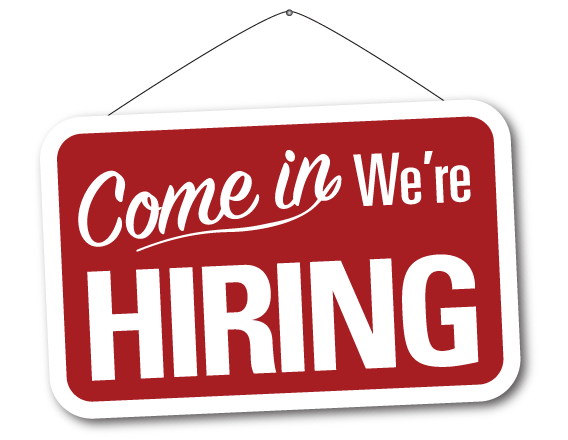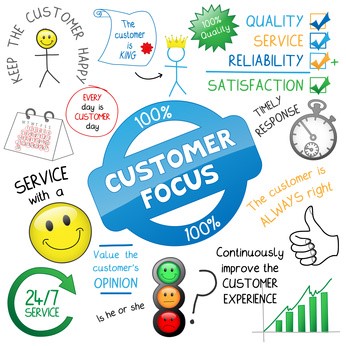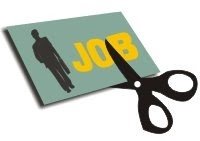HOW TO FUEL ECONOMIES
The best way to fuel economies is to create more jobs. How do you create more jobs?
In the private sector, businesses create job opportunities to fulfill the goods or service needs and wants of society because there is an incentive to make a profit.

As long as businesses can make a profit (incentive) by producing goods and services that are needed and wanted by the consumer, businesses can provide job opportunities and fuel economies.
CONSUMER IS BOSS
The creation of economic growth in the private sector is fueled and perpetuated by supplying goods and services that are needed and wanted by the consumer.

The consumer is the employer of someone that produces goods or services for a profit. The consumer is the direct employer of a business. For a business to be viable, it answers to the consumer. When a business produces goods or services that the consumer needs or wants at a price the consumer is willing and able to pay, the business remains viable, jobs are created and income is generated; which in turn fuels the economy.
Most businesses need a large volume turnover of products to money, to remain viable. Instead of making a large profit on each item, many businesses make their profit from volume of goods or services sold. The more often money is turned around from goods and services to money to goods and services to money again...; the more money is "generated" to fuel economies. A rapid rate of exchange of goods and services for money means that businesses can earn a good profit (incentive) on volume, keep prices low, foster demand, create jobs, create wealth and fuel economies.
In a business friendly environment, businesses can create goods and services at competitive prices the consumer is willing and able to buy. The perpetual rapid rate of turnover of goods and services for money generates a good steady flow of revenue to fuel economies.
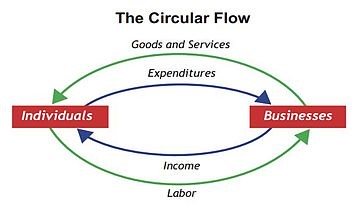
The rapid rate of exchange of goods and services for money creates more and more job opportunities. More jobs opportunities translate to more money in the pockets of the consumer. More money available to the consumer translates to more demand for goods and services, more jobs and more money generated to fuel economies.
The slower turnover of goods and services to money to goods and services again means that businesses are making less money on volume.
When the purchase of goods and services slows down, there is less need to produce goods and services. With less demand for goods or services and a reduced influx of money, businesses have to cut costs and lay off workers to remain viable. This is a loss of jobs. A loss of jobs means less money in the hands of the consumer which translates into even less demand for goods or services to fuel the economy.
A sluggish economy is an indicator that the market price of goods and services exceeds "what the market will bear". "Greedy" businesses know that to boost the purchase of goods and services, they just need to lower their prices. Unfortunately, businesses cannot lower their costs lower than it cost them to bring the goods and services to the market.
Cost of Government on Economies
Public Sector (civil service) jobs are not self funded. Public sector jobs rely on tax payer funded government bureaucracies that take money from the private sector economy to pay for public sector jobs. Public sector jobs are an expense on the private sector. The bigger government gets, the more expense it costs the private sector to fund.
When you hear a politician pushing a "jobs bill" to hire more teachers, firefighters, police or to create more construction jobs to build roads and bridges, you should know that it is code for raising taxes or barrowing money (deferred tax hikes).
Of course public sector services are needed; but, the private sector community can only afford to support a limited public sector bureaucracy. When the expense of supporting the public sector is too great, the private sector economy suffers. Consequently, there is less money to fuel economies and there is less taxes collected for the public sector bureaucracy.
Bonner Speaks Against Costly Government Regulations
Posted By:JoBonner
The cost of government reduces the ability of the free market to fuel economies.
When government tacks on burdensome government regulations onto the costs of doing business like permit costs, fines, excessive business license costs, excessive tax rates, etc., it artificially drives up the costs of doing business. Consequently, it drives up the cost of goods and services at market place. The cost of burdensome government tax levies on businesses are costs to the consumer in the form of artificially higher prices of goods and services in the market place. The cost of burdensome tax levies on businesses are actually HIDDEN TAXES on consumers.
If it is the purchase of goods and services that fuels economies, when the purchase of goods and services is reduced, there is less funding for economies to grow, except for borrowed money on borrowed time.
When we grow the government and the costs of funding the government at the expense of the private sector that funds it, it is inevitable that at some point the scales would be tipped where the costs of government are no longer sustainable.
When
you drain purchasing resources out of economies, it stifles the growth of those
economies and the ability of the market to fuel economies.
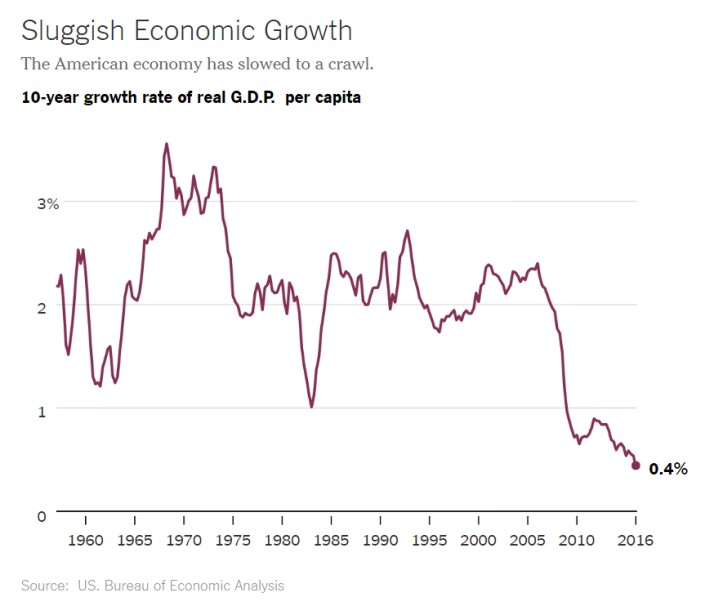
Growing the government and increasing the cost to do business to fund the government, perpetuates a sluggish economy and reduces income to the government.
If you don't make plans for yourself, you will likely have to fit into someone else's plans. #DarrenSupport
— SiteSell Inc. (@SiteSell) July 2, 2010
Don't limit your goals to what YOU know how to do. Find someone to help take you to the next level. #WendyCoach
— SiteSell Inc. (@SiteSell) June 15, 2010
Don't waste time doing things that don't lead you to your goals. My goals include financial security & strong family relationships.#CarlaQA
— SiteSell Inc. (@SiteSell) July 5, 2010

